1-Naphthalenemethylamine

1-Naphthalenemethylamine structure
|
Common Name | 1-Naphthalenemethylamine | ||
|---|---|---|---|---|
| CAS Number | 118-31-0 | Molecular Weight | 157.212 | |
| Density | 1.1±0.1 g/cm3 | Boiling Point | 294.5±0.0 °C at 760 mmHg | |
| Molecular Formula | C11H11N | Melting Point | 262-269 °C | |
| MSDS | Chinese USA | Flash Point | 148.3±11.5 °C | |
| Symbol |

GHS07 |
Signal Word | Warning | |
| Name | 1-Naphthalenemethylamine |
|---|---|
| Synonym | More Synonyms |
| Density | 1.1±0.1 g/cm3 |
|---|---|
| Boiling Point | 294.5±0.0 °C at 760 mmHg |
| Melting Point | 262-269 °C |
| Molecular Formula | C11H11N |
| Molecular Weight | 157.212 |
| Flash Point | 148.3±11.5 °C |
| Exact Mass | 157.089142 |
| PSA | 26.02000 |
| LogP | 2.32 |
| Vapour Pressure | 0.0±0.6 mmHg at 25°C |
| Index of Refraction | 1.653 |
Synonym:1-(Aminomethyl)naphthalen Section 2 - COMPOSITION, INFORMATION ON INGREDIENTS
Risk Phrases: 36/37/38 Section 3 - HAZARDS IDENTIFICATION EMERGENCY OVERVIEW
Irritating to eyes, respiratory system and skin. Potential Health Effects Eye: Causes eye irritation. Skin: Causes skin irritation. May be harmful if absorbed through the skin. Ingestion: May cause irritation of the digestive tract. May be harmful if swallowed. Inhalation: Causes respiratory tract irritation. May be harmful if inhaled. Chronic: Not available. Section 4 - FIRST AID MEASURES Eyes: Flush eyes with plenty of water for at least 15 minutes, occasionally lifting the upper and lower eyelids. Get medical aid. Skin: Get medical aid. Flush skin with plenty of water for at least 15 minutes while removing contaminated clothing and shoes. Ingestion: Get medical aid. Wash mouth out with water. Inhalation: Remove from exposure and move to fresh air immediately. If not breathing, give artificial respiration. If breathing is difficult, give oxygen. Get medical aid. Notes to Physician: Treat symptomatically and supportively. Section 5 - FIRE FIGHTING MEASURES General Information: As in any fire, wear a self-contained breathing apparatus in pressure-demand, MSHA/NIOSH (approved or equivalent), and full protective gear. Will burn if involved in a fire. Extinguishing Media: Use water spray, dry chemical, carbon dioxide, or chemical foam. Section 6 - ACCIDENTAL RELEASE MEASURES General Information: Use proper personal protective equipment as indicated in Section 8. Spills/Leaks: Absorb spill with inert material (e.g. vermiculite, sand or earth), then place in suitable container. Section 7 - HANDLING and STORAGE Handling: Avoid breathing dust, vapor, mist, or gas. Avoid contact with skin and eyes. Storage: Store in a cool, dry place. Store in a tightly closed container. Keep under a nitrogen blanket. Section 8 - EXPOSURE CONTROLS, PERSONAL PROTECTION Engineering Controls: Facilities storing or utilizing this material should be equipped with an eyewash facility and a safety shower. Use adequate ventilation to keep airborne concentrations low. Exposure Limits CAS# 118-31-0: Personal Protective Equipment Eyes: Not available. Skin: Wear appropriate protective gloves to prevent skin exposure. Clothing: Wear appropriate protective clothing to prevent skin exposure. Respirators: Follow the OSHA respirator regulations found in 29 CFR 1910.134 or European Standard EN 149. Use a NIOSH/MSHA or European Standard EN 149 approved respirator if exposure limits are exceeded or if irritation or other symptoms are experienced. Section 9 - PHYSICAL AND CHEMICAL PROPERTIES Physical State: Liquid Color: yellow Odor: Not available. pH: Not available. Vapor Pressure: Not available. Viscosity: Not available. Boiling Point: 290 - 293 deg C @760mmHg Freezing/Melting Point: Not available. Autoignition Temperature: Not available. Flash Point: > 110 deg C (> 230.00 deg F) Explosion Limits, lower: Not available. Explosion Limits, upper: Not available. Decomposition Temperature: Solubility in water: Specific Gravity/Density: 1.073 Molecular Formula: C11H11N Molecular Weight: 157.21 Section 10 - STABILITY AND REACTIVITY Chemical Stability: Not available. Conditions to Avoid: Incompatible materials. Incompatibilities with Other Materials: Oxidizing agents, acids, acid anhydrides, chloroformates, acid chlorides. Hazardous Decomposition Products: Nitrogen oxides, carbon monoxide, carbon dioxide. Hazardous Polymerization: Has not been reported Section 11 - TOXICOLOGICAL INFORMATION RTECS#: CAS# 118-31-0 unlisted. LD50/LC50: Not available. Carcinogenicity: 1-Naphthalenemethylamine - Not listed by ACGIH, IARC, or NTP. Section 12 - ECOLOGICAL INFORMATION Section 13 - DISPOSAL CONSIDERATIONS Dispose of in a manner consistent with federal, state, and local regulations. Section 14 - TRANSPORT INFORMATION IATA Shipping Name: Not regulated. Hazard Class: UN Number: Packing Group: IMO Shipping Name: Not regulated. Hazard Class: UN Number: Packing Group: RID/ADR Shipping Name: Not regulated. Hazard Class: UN Number: Packing group: Section 15 - REGULATORY INFORMATION European/International Regulations European Labeling in Accordance with EC Directives Hazard Symbols: XI Risk Phrases: R 36/37/38 Irritating to eyes, respiratory system and skin. Safety Phrases: S 26 In case of contact with eyes, rinse immediately with plenty of water and seek medical advice. S 37/39 Wear suitable gloves and eye/face protection. WGK (Water Danger/Protection) CAS# 118-31-0: No information available. Canada CAS# 118-31-0 is listed on Canada's NDSL List. CAS# 118-31-0 is not listed on Canada's Ingredient Disclosure List. US FEDERAL TSCA CAS# 118-31-0 is listed on the TSCA inventory. SECTION 16 - ADDITIONAL INFORMATION N/A |
| Symbol |

GHS07 |
|---|---|
| Signal Word | Warning |
| Hazard Statements | H315-H319-H335 |
| Precautionary Statements | P261-P305 + P351 + P338 |
| Personal Protective Equipment | Eyeshields;full-face respirator (US);Gloves;multi-purpose combination respirator cartridge (US);type ABEK (EN14387) respirator filter |
| Hazard Codes | Xi:Irritant; |
| Risk Phrases | R36/37/38 |
| Safety Phrases | S26-S36/37/39 |
| RIDADR | 2735 |
| WGK Germany | 3 |
| Packaging Group | III |
| Hazard Class | 8 |
| HS Code | 2921499090 |
| Precursor 10 | |
|---|---|
| DownStream 10 | |
| HS Code | 2921499090 |
|---|---|
| Summary | 2921499090 other aromatic monoamines and their derivatives; salts thereof VAT:17.0% Tax rebate rate:9.0% Supervision conditions:none MFN tariff:6.5% General tariff:30.0% |
|
Chiral amplification in macromolecular helicity assisted by noncovalent interaction with achiral amines and memory of the helical chirality.
Chemistry 10(19) , 4703-7, (2004) Poly[(4-carboxyphenyl)acetylene] (poly-1) exhibits an intense induced circular dichroism (ICD) in the UV-visible region upon complexation with excess (R)-1-(1-naphthyl)ethylamine ((R)-2), owing to the... |
|
|
HPLC method validation studies on a specific assay for monomethoxypoly(ethylene glycol) succinimido carbonate (mPEG-SC).
J. Pharm. Biomed. Anal. 50(2) , 138-43, (2009) An UV-HPLC method for the determination of the potency of mPEG-SC, 5 kDa (1) has been developed and validated. Validation acceptance criteria that is typical of small molecule method validation was su... |
| 1-Naphthalenemethanamine |
| 1-(naphthalen-1-yl)methanamine |
| Naphthalen-1-ylmethanamine |
| 1-Naphthalenemethyl amine |
| 1-Naphthylmethylamine |
| 1-(1-Naphthyl)methanamine |
| EINECS 204-244-0 |
| MFCD00004048 |
| 1-Naphthalenemethylamine |
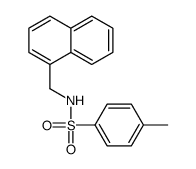 CAS#:86328-84-9
CAS#:86328-84-9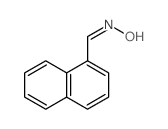 CAS#:13504-46-6
CAS#:13504-46-6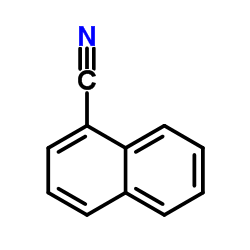 CAS#:86-53-3
CAS#:86-53-3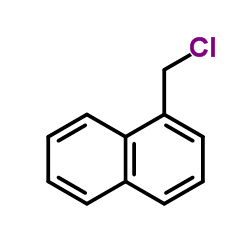 CAS#:86-52-2
CAS#:86-52-2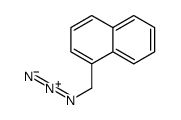 CAS#:55210-79-2
CAS#:55210-79-2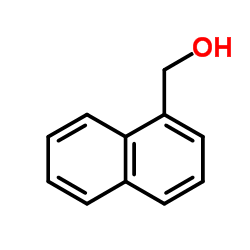 CAS#:4780-79-4
CAS#:4780-79-4 CAS#:6968-09-8
CAS#:6968-09-8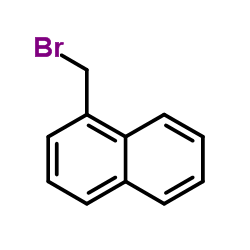 CAS#:3163-27-7
CAS#:3163-27-7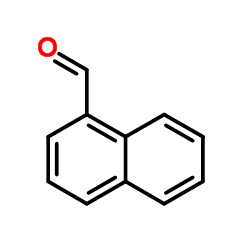 CAS#:66-77-3
CAS#:66-77-3 CAS#:86-86-2
CAS#:86-86-2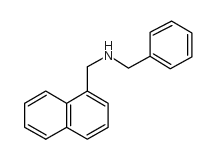 CAS#:14393-12-5
CAS#:14393-12-5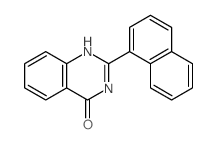 CAS#:18818-37-6
CAS#:18818-37-6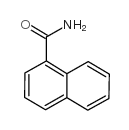 CAS#:2243-81-4
CAS#:2243-81-4![3-bromo-N-(naphthalen-1-ylmethyl)-benzo[b]thiophene-2-carboxamide structure](https://image.chemsrc.com/caspic/495/1355943-34-8.png) CAS#:1355943-34-8
CAS#:1355943-34-8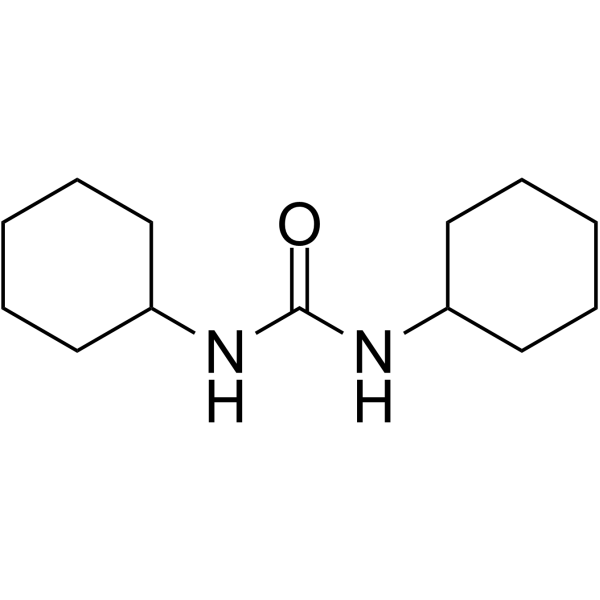 CAS#:2387-23-7
CAS#:2387-23-7 CAS#:846-63-9
CAS#:846-63-9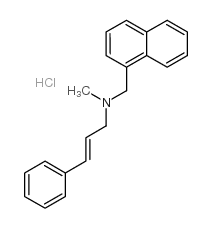 CAS#:65472-88-0
CAS#:65472-88-0
